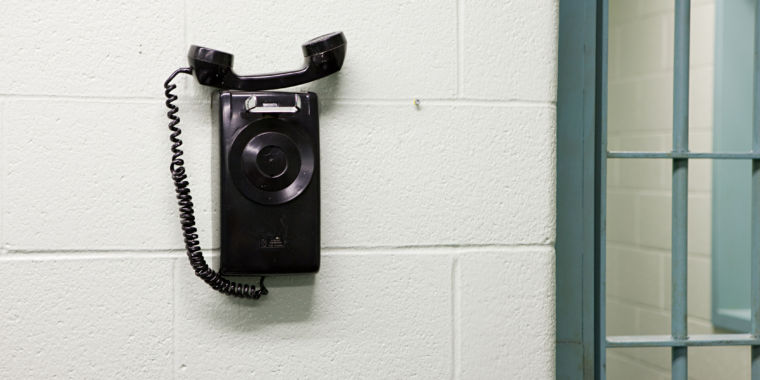The Federal Communications Commission today voted to lower price caps on prison phone calls and closed a loophole that allowed prison telecoms to charge high rates for intrastate calls. Today’s vote will cut the price of interstate calls in half and set price caps on intrastate calls for the first time.
The FCC said it “voted to end exorbitant phone and video call rates that have burdened incarcerated people and their families for decades. Under the new rules, the cost of a 15-minute phone call will drop to $0.90 from as much as $11.35 in large jails and, in small jails, to $1.35 from $12.10.”
The new rules are expected to take effect in January 2025 for all prisons and for jails with at least 1,000 incarcerated people. The rate caps would take effect in smaller jails in April 2025.
Worth Rises, a nonprofit group advocating for prison reform, said it “estimates that the new rules will impact 83 percent of incarcerated people (about 1.4 million) and save impacted families at least $500 million annually.”
New power over intrastate calls
The FCC has taken numerous votes to lower prison phone rates over the years, but today’s is particularly significant. While the FCC was previously able to cap prices of interstate calls, an attempt to set prices for intrastate calls was struck down in court in 2017.
Prison phone companies could sue again. But the FCC said it now has authority over intrastate prison phone prices because of the Martha Wright-Reed Just and Reasonable Communications Act, which was approved by Congress and signed by President Biden in January 2023. The new law “empowered the FCC to close the final loopholes in the communications system,” the commission said.
The 2023 law—named for a grandmother who campaigned for lower prison phone rates—”removes the principal statutory limitations that had prevented the Commission from setting comprehensive just and reasonable rates,” the FCC said. Specifically, the law removed “limits to the Commission’s ability to regulate rates for intrastate calls and video communications.”
More than half of prison audio call traffic is intrastate, with the calling and called parties both in the same state, according to data in a draft of the FCC order released before the meeting.
The FCC’s work to reduce prison phone rates “was not always embraced by the courts,” Chairwoman Jessica Rosenworcel said today. “We were told—over and over again—that the commission did not have the authority to address every aspect of these rates, because while interstate calls fell within our jurisdiction, intrastate calls did not.”
Previously, the FCC imposed price caps on interstate calls ranging from $0.14 to $0.21 per minute for audio calls, depending on the size of the facility. Going forward, a uniform set of price caps ranging from $0.06 to $0.12 per minute will apply to both interstate and intrastate calls.

